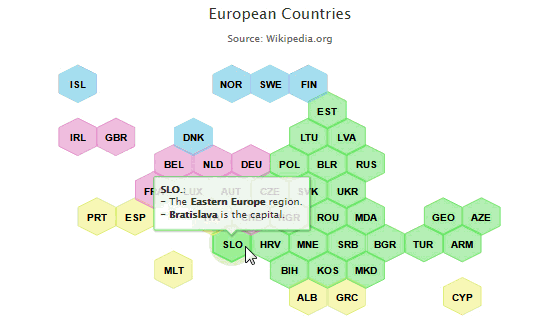Will new NSA data sharing rules result in more people being caught in "surveillance crossfire&q
Are you aware your medical data is being sold on (US patients)? How can re-identification be avoided? Can data science beat cancer? Should gadget fixers be being paid to identify criminal activity on customers computers? Is your personal data vulnerable from using auto-fill?
Can VR be used to incite empathy? Was 2016 especially dangerous for celebrities? In need of large realistic dummy data sets for product dev, testing or demos? How good are you at guessing the correlation coefficient from scatter plots?
A curated summary of the top data news from the week:
Data sharing
The Obama administration has implemented new data sharing rules which allow the NSA to share globally intercepted personal data with other government agencies. Official reports claim the new legislation only extends the existing information to being available to an increased number of data analysts. Although the aim is to make it easier to identify and prevent potential terrorist attacks, it does pose serious questions on how many more innocent people will have their privacy infringed in the "surveillance crossfire". ⚔
Strengthening Protection of Patient Medical Data - in-depth report by The Century Foundation. Worthwhile read exploring the current issues with the way medical data is handled in the US. In particular, with the discussion of the growing threat of the re-identification of sensitive data. Sam Thielman summaries for The Guardian: "Although information is anonymised, data miners and brokers can build up detailed dossiers on individual patients by cross-referencing with other sources." 🙄
Notably, the report does highlight the importance of having a data-sharing network to improve medical research. But other data sources, such as social media, fitness devices and health apps, can be openly sold and shared "without any obligation to remove patient names or details". This is worrying for personal privacy as this larger network will eventually provide "enough clues to re-identify nearly anyone who has received medical care". 🔍
The network for patient data sharing, by TheDataMap
Next step: But can data science beat cancer? 🏥 "Many data sets, including medical records, genetic tests and mammograms, are locked up and out of reach of our best scientific minds and our best learning algorithms." Being able to share these data sets in a privacy safe way could provide researchers with the missing link. ✅
Uber launched Movement - a new website offering access to its traffic data to help ease city congestion. The platform is currently available to select organisations, but will eventually be available to the general public. Check out the viz below.
Uber's "Movement"
Privacy
When gadget fixers turn FBI informants. 💻 An investigation has revealed that "technicians from Best Buy's repair shop, Geek Squad, have served as paid informants for the FBI." 🕵 Ethical dilemma - a massive breach of trust but in the search for "incriminating evidence in the form of child pornography on customer computers"..
The European Commission proposes new legislation to implement high level privacy rules for all electronic communications, with the aim to "increase protection of people's private life and open up new opportunities for business". ✅ Key points:
Confidentiality rules will now be applicable to all providers of electronic communications (WhatsApp, Facebook, Skype, Gmail, iMessage and Viber)
Privacy will be guaranteed for both content and metadata (such as the time and location of a call) - must be anonymised or deleted if users have not given explicit consent
New rules for cookies and give users more control over their settings - and no consent will be needed for non-intrusive cookies (such as remembering shopping cart history)
Marketing callers will need to display their phone number or use a special pre-fix that indicates a marketing call
GDPR will be implemented in the UK regardless of Brexit - so all UK businesses will need to become GDPR compliant by 25 May 2018. 📄 Also: EU has published first guide on GDPR. Get ready!!
Browser auto-fill feature can leak your personal information to hackers. Finnish whitehat hacker Viljami Kuosmanen revealed how attackers can leverage autofill to obtain sensitive information. 😬 Get the demo on GitHub here. 🤓
Microsoft's new privacy dashboard lets you delete personal data. As part of a privacy-shakeup, Microsoft has launched an online tool to give users "more transparency and control over histories and personal information." ✅ Users can also (if they want) use the dashboard to opt-out from location tracking, speech recognition and personal data being used to create "relevant ads". 👍
Miscellaneous
Can VR be used to incite empathy? 🤔 Ali Eslami's award-winning immersive stimulation uses data to visualise the horrors of mass death. DeathTolls explores “new pathways in the perception of data,” creating a vehicle for empathy in processing otherwise “meaningless datasets.”
Was 2016 especially dangerous for celebrities? Jason Crease conducts an empirical analysis and (obviously) concludes that "2016 was indeed a year of surprisingly-many celebrity deaths". 😑
In need of large realistic dummy data sets for product dev, testing or demos? 📈 Check out DataBake - generates (free!) personalised data sets. It enables users to define the entire look of their data set and the desired insights. 🍰
👾 GAME TIME: How good are you at guessing the correlation coefficient from scatter plots? 🤔
Map of reddit's active communities, by David Marx
















